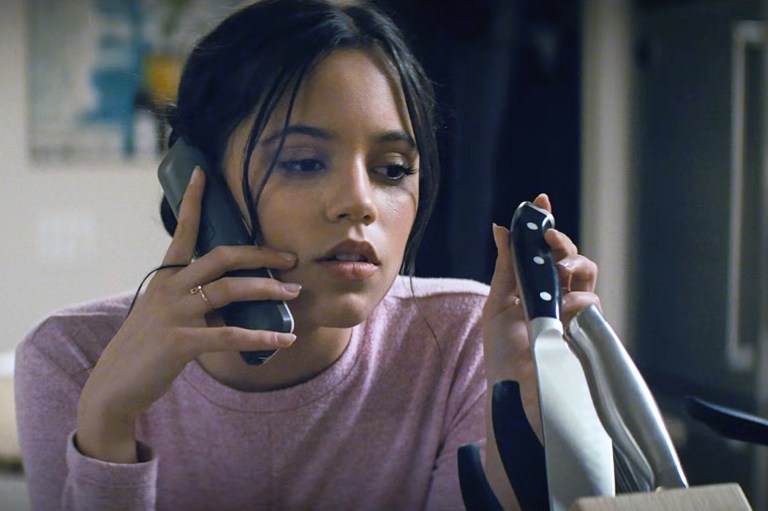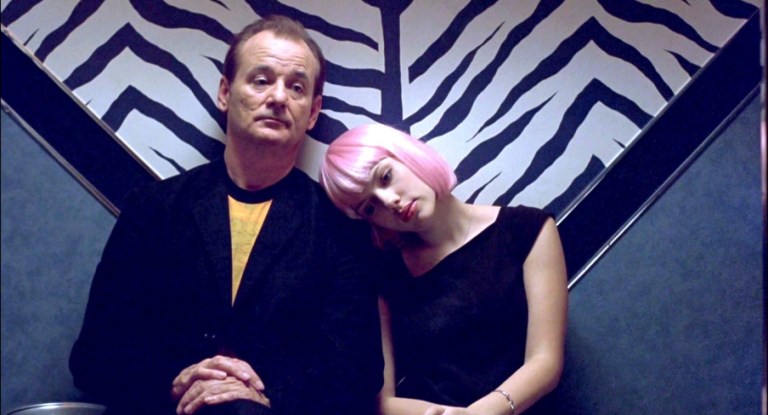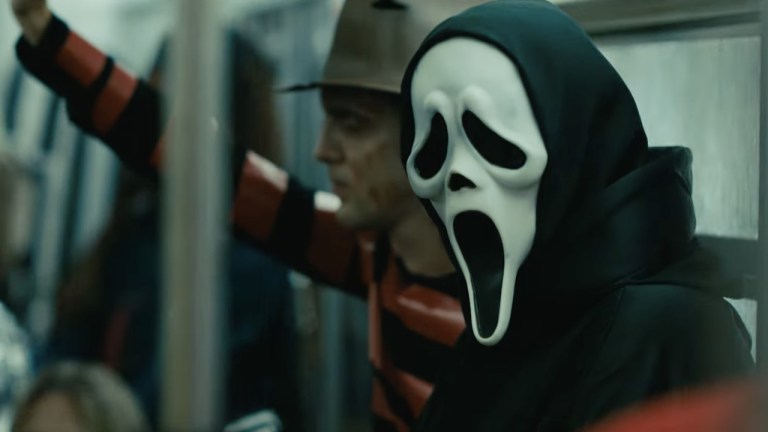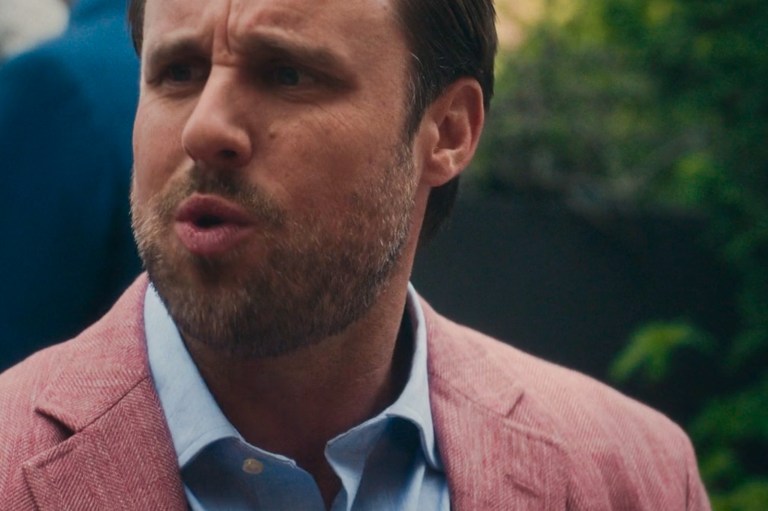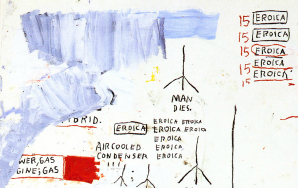
Am I Really A Writer? Am I Really An Artist?
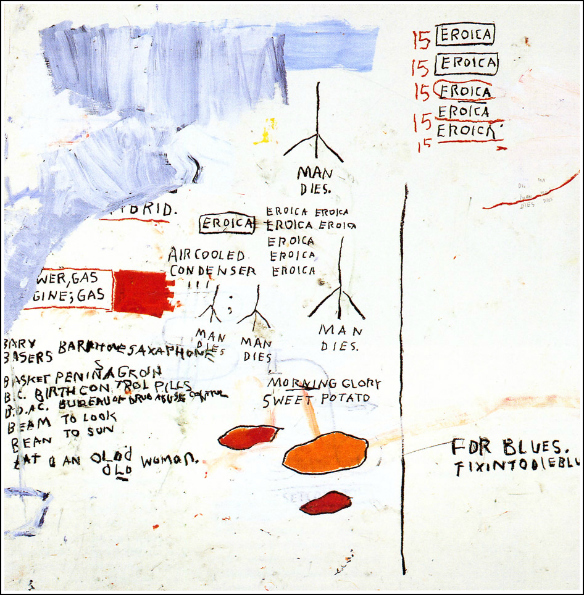
- Stop it.
- Stop asking the question.
- Within the question itself is contained the answer.
- The very answer itself.
- “Oh, god, am I a writer? Am I an artist?”
- Actually, I don’t really totally mean that you have to stop asking these things. But at least calm down a bit; and in so doing — in so calming down, you can do us both a service.
- Here is the answer to your question.
- If you’re asking such things (am I an artist), then you’re already on the right track.
- Dumb people don’t ask themselves such things.
- Dumb people, by mere virtue of being dumb, are already convinced of their own innate awesomeness.
- Here’s an example; a weird example but nonetheless an example: Think of people on reality TV shows.
- These people are awful; we know this.
- Why are they awful, though?
- They’re awful because they never doubt themselves for a single second.
- “Are YOU DISSIN’ ME? Yeah; you’re dissin’ me, girl!” Or: “I just don’t get enough respect around this house!”
- So say dumb people on reality shows.
- We all know this. But note the lack of doubt; the utter lack of doubt contained within these sentences.
- …Look at, say, Kim Kardashian. Does she ever doubt herself?
- No. No; she does not.
- Is Kim Kardashian currently in the running for one of the Worst Human Beings on the Planet? Why; yes. Yes she is.
- But to return to our actual thesis, in a roundabout way: Is Kim Kardashian an artist?
- No. Absolutely she isn’t.
- To create art, you have to begin with asking yourself questions.
- “Am I talented?” No dumb person would ever ask themselves this, and if you are asking yourself this, then you’re on your way.
- You’re not there yet, but you’re on your way.
- …Are you annoyed by that above statement? Did you already think you were a great artist? If so, then you’ll never make it.
- Listen to me: I wrote for six hours a day, every day, for ten years, before I could even begin to consider myself a writer, before I could really start getting paid for it.
- What you need — yes, you — what you need is a little thing that the poet Keats called “Negative Capability.”
- “Negative Capability” — the ability to hold two conflicting ideas in your head at the same time.
- “Am I awesome?/ Am I not awesome?” …You’re neither. Deal with it. Handle it.
- You’re neither one of those things, exactly.
- Learn to live with it; learn to live in the gray area.
- “Am I an artist/ Am I not an artist?” …You’re neither.
- …But what you are is the sort of person who’s starting to ask the right questions.
- If you didn’t ask the question, then what you’d have is no hope.
- Since you’re asking the question, you have hope. Now what you need to add to that hope is work.
- Work. Work, work, work. How do you get to Carnegie Hall? …Practice.
- By asking the question of whether you’re an artist, you’ve displayed the insight necessary to be an artist. Now work at it.
- What? …Did you think this was going to be easy? You pussy you.
- Here’s the brilliance of Negative Capability, which is the thing that you need. If you think you’re awesome all the time, then you’re automatically lame. But if you never think that you’re awesome, then you’ll always be… also lame.
- The same holds true for being an artist.
- If you always think you’re good, you’ll never work harder — and hence, never improve.
- But if you always think that you’re bad, then you’ll give up, and never get good.
- So you have to believe both at the same time in order to get anywhere.
- Asking “am I an artist” is a good first step. Because by even daring to ask it, you sort of believe that you are. At the same time you doubt it, or you wouldn’t have phrased it as a question.
- That’s what you need to be — and it never ends. It never ends if you win the Guggenheim Fellowship, the Nobel Prize in Literature, if you’re part of an idiot trend piece in New York Magazine about rising young artists.
- If you stop ever asking yourself the question, then you’ll be complacent. And once you’re complacent, you’ll stop being a writer, an artist, or whatever it is that you want to be.
- Listen to me.
- Final story.
- This is a parable, but it also really happened.
- So.
- So, the philosopher Socrates — basically the first philosopher in the history of the world, give or take — the philosopher Socrates once was worried, felt a little neurotic, was worried about the lack of smartness in the world.
- So Socrates went to the Oracle at Delphi. The Oracle being a quasi-mystical being. You could ask her questions, and she would always answer with the truth.
- The catch being that she would answer cryptically, poetically, and then you would have to translate her answer in your own head.
- So Socrates was worried about the dumbness of the world, and so he went to the Oracle and asked her this: “Who is the wisest man in Greece?” (Greece being the extent of the known world at the time, at least for him.)
- And the Oracle answered thus:
- “Socrates,” she said.
- “Socrates,” she said, “is the wisest man in Greece.”
- This did not comfort Socrates, as you might think, or make him feel proud, as you also might think.
- Instead, it bugged the hell out of him.
- He walked home from Delphi to Athens, with the whole thing bugging him the whole time.
- What did she mean, he was the smartest? He specifically knew that he wasn’t smart — that was why he went and asked the fucking question in the first place.
- And so he went and tried to figure out what the hell the Delphic Oracle was talking about.
- He began travelling all over Greece, asking questions of men that were reputed geniuses, who were known for their brilliance. He wanted to know what was going on with this whole smartness thing.
- And here’s what he found. If he kept on asking questions, eventually the geniuses would be flummoxed. They would start out sounding good: “The meaning of life is blah blah blah blah blah.“
- And then he would ask, “Why is that true?”
- And when they answered, he would press for further details; he would ask “Well why is your follow-up statement true then?!!”
- In a short time, the “genius” person would run out of pre-crafted witty replies, or get confused, or contradict themselves, or all three at once.
- …And thus Socrates realized something. It took years, but he realized it.
- He was the wisest man in Greece.
- Why?
- Because he knew that he knew nothing.
- And by being the only man honest enough in Greece to admit that he knew nothing, he was unafraid to ask questions — to genuinely seek to know, no matter how awkward and embarrassing asking weird questions might be.
- And thus, by so doing, he eventually learned everything; by being open to learning anything.
- And so became the wisest man of his age. The first real philosopher.
- The moral?
- If you think you know what you’re doing, you don’t.
- But if you have the confidence to keep working at what you’re doing, while doubting your efforts the whole time, then you’ll become great — a hero, a sage, a Magi.
- Thus endeth the lesson.
- …Now go forth, and do your work.

